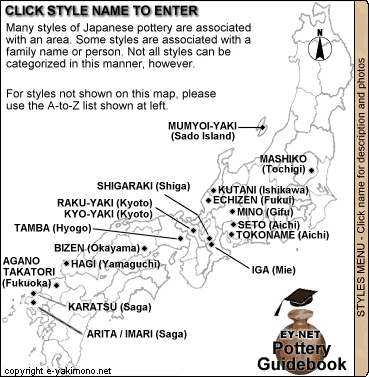Introduction
Generally speaking, medieval times covers the years 500 to 1500 A.D. Many authors have the period starting earlier or ending later but, for the purpose of this paper, the period 500 to 1500 A.D. will be used.
While Europe was developing China, India, and Japan were also undergoing changes. Medieval times for these countries had them pretty much isolated. Although there was trade going on the fringes of these countries most natives of these countries had never seen a European or African.
China
A visit to medieval china would find the country under the Second Empire (589-1644). The following are the dynasties of this period leading up to modern China (Condensed China, 2007):
- Sui: 589 – 618
- Tang: 618 – 907
- Northern and Southern Song: 960 – 1279
- Yuan (Mongol): 1279 – 1368
- Ming: 1368 – 1644
A type of art that existed during this timeframe was ceramic pottery. Other countries such as Japan and Korea borrowed a lot of Chinese techniques. At the beginning of the medieval period (Sui and Tang period), Chinese artisans had developed both low-firing and high-firing techniques. Again, Korea and Japan borrowed that knowledge and applied it in the development of their ceramic vessels. During the Song and Yuan Dynasties, the Chinese used crushed and refined porcelain stones. The Chinese also mastered the use of cobalt oxide to produce blue and white wares.
By the time of the Ming dynasty, the Chinese had mastered their techniques. Certainly, the arrival of Europeans and the expansion of trade routes opened up new markets for the Chinese wares. Also, as China was pulled out of the medieval time contact with the western world offered the Chinese the opportunity to seek out new types of glazes to use on their pottery.
Japan
A medieval visit to Japan would find the traveler in the Nara and Heian Periods (710-1192). Later periods include the following:
- Kamakura Period (1192-1333)
- Muromachi Period (1338-1573)
Japanese artisans also created ceramic wares. Most of their techniques came from China via Korea. Unlike Chinese or Korean pottery Japanese pottery is regionally unique as shown below:

During the end of medieval times and into modern times the Japanese have steadily added to their knowledge base. Becoming a member of the global marketplace has allowed the Japanese to explore different techniques using different types of clays, firing techniques, and glazes. Most importantly the Japanese have a good worldwide market for their pieces.
India
A visit to India during medieval times would find the traveler in the Gupta Empire (250-550 A.D.) The other empires up to the end of medieval times were:
- Pala Empire (750-1174)
- Chola Empire (848-1070)
- Islamic Sultanates (1206-1596)
Ceramics are quite popular in India today. They are beautifully colored and painted by hand. While China is famous for its development of porcelain, and Japan for its tea sets, India developed ceramics uniquely their own as well. Indian ceramics are called terra cotta and are made from simple clay and baked unglazed. Indians have been making terra cotta for thousands of years. At first terra cotta was made for practical reasons as tiles for roofs and vessels for holding water.
The Indians also made figurines and statues out of terra cotta. As the medieval period closed and India moved into the global marketplace the demand for terra cotta has increased. Also made in India are ‘tabla’ (Baxter, 2007) which are double-headed ceramic kettledrums that look like large cooking pots. They were quite plain-looking until those who manufactured them in India began to experiment with glazes or apply new techniques learned from China, Korea, or Japan.
References
American Psychological Association (2001). Publication manual of the American Psychological Association (5th ed.). Washington, DC: American Psychological Association.
Condensed China. (2007) Chinese History For Beginners. Web.
Japan Guide. (2007). Japanese History. Web.
Baxter, Richard. (2007). Ceramic Musical Instruments. Web.